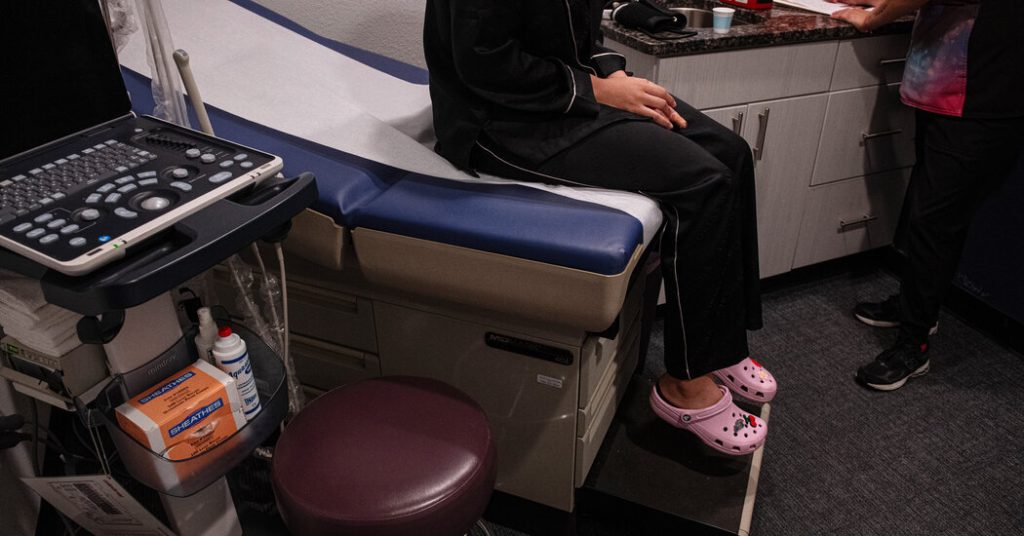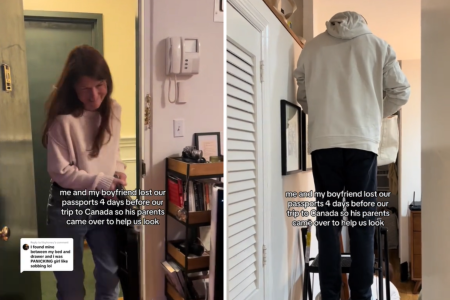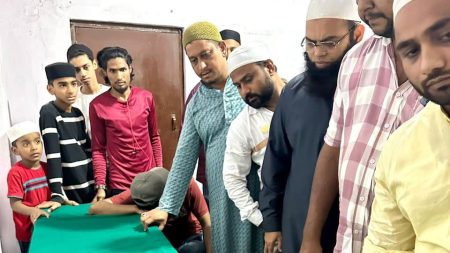Leah, a 29-year-old woman, found out she was five weeks pregnant on the same day that the Arizona Supreme Court upheld an 1864 law banning nearly all abortions in the state. Concerned about the potential closure or overcrowding of abortion clinics due to the ruling, she decided to schedule an abortion at the Acacia Women’s Center in Phoenix. This decision came without much deliberation, as Leah felt her options were limited. The ruling has significant implications for women, with many feeling like unwilling participants in a broader national debate on women’s health and reproductive rights.
The ruling sparked outrage and mobilization among Arizona’s Democratic lawmakers, who unsuccessfully attempted to repeal the law. Both sides of the issue are preparing for further legal battles over the enforcement of the ban. Patients at Acacia expressed concern over the limited access to abortions in Arizona, given the existing restrictions and a potential influx of patients due to the court ruling. Some women were worried about cancelled appointments, clinic closures, and the possibility of having to continue their pregnancies against their wishes.
The 1864 ban prohibits all abortions except those that save the mother’s life, and had been challenged by abortion-rights groups who argued it was superseded by a 2022 law banning abortions after 15 weeks. With clinics already booked through April, patients were worried about their options running out. Many of the women interviewed expressed confusion and disbelief at having to navigate a law written in an era when women’s rights were limited. Some supported moderate restrictions on abortions but felt the 1864 ban was too extreme.
The Acacia Women’s Center, where many of these women sought abortions, has long been a target for anti-abortion protests. Owner Dr. Ronald Yunis has faced backlash from demonstrators and even legal issues for defending his clinic and patients. The ruling has created uncertainty and fear among staff members who may lose their jobs if they can no longer perform abortions in Arizona. Despite the challenges, some patients remain hopeful and are actively engaged in advocating for reproductive rights, even if they are unable to vote.
Some patients, like 17-year-old Iris, face particularly challenging circumstances. Already a mother at a young age, she cannot envision raising another child while pursuing her dreams of higher education. Her mother, Ruby, accompanies her to the clinic despite religious reservations about abortion, recognizing the necessity of the decision. Iris and her mother reflect the complexity and personal stakes of the abortion debate, with each woman wrestling with her beliefs and the practical realities of their lives.
The experiences of women seeking abortions at Acacia and the implications of the Arizona Supreme Court’s ruling highlight the ongoing challenges and debates surrounding reproductive rights in the United States. As women navigate restrictive laws, limited access to healthcare, and political uncertainty, their stories underscore the deeply personal and complex nature of the abortion issue. Despite facing significant obstacles, many of these women remain committed to fighting for their rights and advocating for changes that support their autonomy and well-being.















